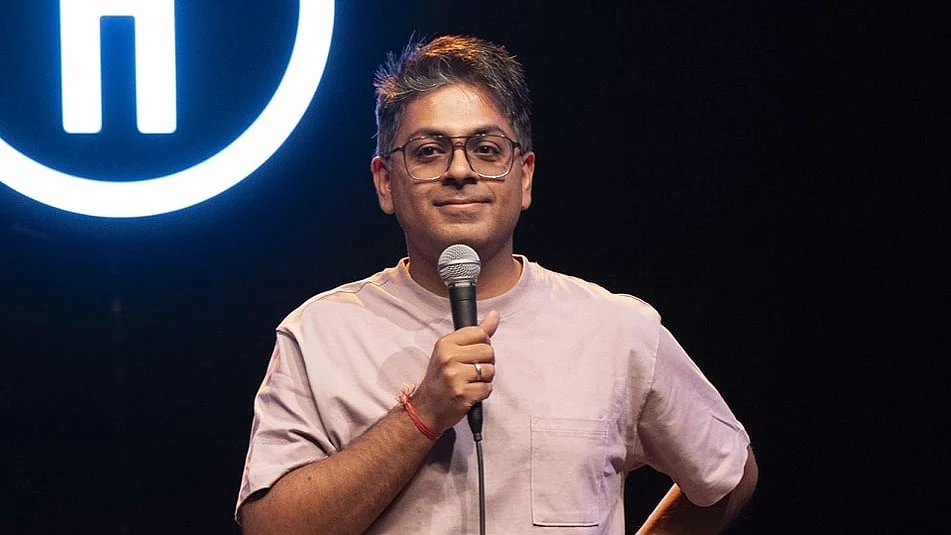One of the toughest challenges that city fathers face in taking cities ahead is balancing the choices to be made between economic prosperity securing the climate and instilling inclusiveness.
This is more perplexing for a country like India which is home to 11% of the global urban population, adding one Chicago city to its urban kitty annually.
India is currently on a superfast highway, where it aims to be a 5-trillion economy by 2024-25 and also achieve the net-zero dream by 2070. A lot of this onus will lie on the shoulders of urban India.
This commitment poses a challenge to balance the trade-offs of development and prosperity – which is a tightrope to walk especially for cities considering they are dealing with people. While cities are growth engines and creators of jobs and opportunity platforms, the issues of climate change linked to poverty, gender exclusion, inclusivity, and harsh environments are real, and need to be dealt with.
A way in the right direction could be a culmination of thoughts from the two futuristic women leaders.
India’s Finance Minister Nirmala Sitharaman recently said that the ‘business as usual’ approach will not work in urban planning. It will require a paradigm change as nearly half of the country’s population will be living in cities by 2047.
Maimunah Sharif, Executive Director of the United Nations Human Settlements Programme (UN‐Habitat), at the World Urban Forum 11 at Katowice in June 2022, highlighted how the urban world is entering a new type of multilateralism based on networking and partnerships, which are committed toward real action.
This points out that the way to balance the challenges of development and ensure cities grow sustainably is by tapping into the widening opportunities through multi-stakeholder engagements, and interlocution with civil society.
Climate protection doesn’t need to only be about spending more, but when done in a strategic and inclusive manner can create benefits at scale.
It begins with assessing city opportunity gaps with the help of tools and technology leading to climate action. Climate protection doesn’t need to only be about spending more, but when done in a strategic and inclusive manner creates benefits at scale.
At the National Institute of Urban Affairs (NIUA), the urban think tank of the Ministry of Housing and Urban Affairs, we have departed from looking at the climate through a project or programme approach, into an ecosystem approach.
The ClimateSmart Cities Assessment Framework (CSCAF) is one such diagnostic tool. Here, data is collected from cities on development indicators of urban planning and biodiversity, energy and green buildings, water management, waste management and air quality and transportation.
Cities are given ratings and equipped with roadmaps and supported through capacity capsules towards the green transition pathways.
As no one single organisation has all the answers, NIUA’s climate alliance plugs in by getting an array of stakeholders to collaborate through knowledge partnerships, climate finance, training and skilling, moving city governments towards climate action. By working with multilateral, academic experts, other think tanks, foreign governments, youth, business houses, and civil society the alliance steers to work towards a common goal.
The ‘Climate India Practitioner’s Network (C-PIN)’, engages with young adults and city practitioners on varied aspects of climate through a volunteering effort. The ‘Climate Capacity Grid’ involves a string of institutes in capacity building, nudging cities and urban leaders to understand good practices across the world.
In order to bridge the gap between academia and practice and its knowledge capsules and nurture young talent, NIUA has initiated a programme called Smart Cities Association with Academia and Research (SAAR).
Such programmes aid in creating new and innovative concepts and ideas, by unscrambling old adages through dialogue, deliberations, and discussions and coming up with a simple design, clear goals, and easy-to-implement guidelines with dedicated funds.
The intended climate action then converts into positive growth policies and creates benefits at scale, which are sustainable, inclusive and with balanced social and economic growth.
The story of our intervention in Amritsar, a city in the north of India, through the ‘City Investments to Innovate, Integrate and Sustain (CITIIS)’ program demonstrates the eco-system approach.
The project intended to upgrade the Intermediate Public Transport (IPT) model of three-wheeler rickshaws, through ‘Development of Sustainable and Green Public Transportation in Amritsar City.
While working on aspects of energy-effective motorisation, the intervention led to skilling users including women. A cooperative was formed to ensure that women were equal owners of vehicles. The Amritsar city nexus approach has led to upgrading urban services, taking care of the environment, creating jobs, upgrading skills and also ensuring that there is gender parity.
The beauty of the project design lay in its flexibility, and its ability to modify its approaches and accommodate changing scenarios to get local buy-in and consensus. This is essential for the acceptance and lasting changes that the project needs to bring in locally.
Our interventions have taught us that there is no better way to gain support and build consensus for reform initiatives other than through the successful execution of pilot projects.
These rich experiences left us with even richer learnings and lessons that will help us make the choices when cities arrive at the difficult juncture of deciding between prosperity and climate security. It is clear that these are not mutually exclusive but will need to become collaborators.
The magic potion for cities will lie in achieving a troika of prosperity-sustainability-inclusivity. And this will work if served in cups of partnerships and alliances that aim at climate action.
Hitesh Vaidya is the Director, National Institute of Urban Affairs (NIUA). Sayli Mankikar heads the City Climate Alliance at NIUA. Views expressed by the authors are personal










